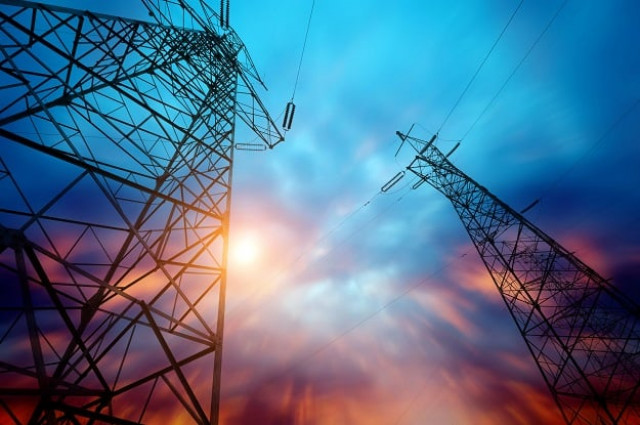New deadline announced for Matiari-Lahore transmission line project
Will be completed in 2019; committee briefed on progress of CPEC projects

PHOTO: REUTERS
CPEC: Largest transmission line project to take 27 months
Construction work on the high voltage direct current transmission line would begin in two months and be completed by 2019, said Water and Power Secretary Younus Dagha, while briefing the Public Accounts Committee (PAC) on the CPEC project portfolio.
Earlier, the government had hoped of commencing the construction work mid of last year but the project was stuck due to dispute over tariffs to be paid to the Chinese company and its insistence on seeking withholding tax exemption.
The secretary said that the work on the second transmission line, Matiari-Faisalabad, would be completed while keeping in mind the commissioning dates of two nuclear-fired power plants being constructed in Karachi to generate 2,200MW electricity.
He said that one of the main challenges in the energy sector was the transmission capacity, which remains insufficient to fully take the load. But the Matiari-Lahore transmission line would largely address this issue, he added.
The PAC had called the Ministries of Water and Power and Planning and Development to get first-hand information about the physical and financial aspects of the CPEC projects, initiated under the Chinese strategic framework of One-Belt, One Road.
However, discussions mainly focused on the physical progress and the environmental aspects of the coal-fired power plants. The PAC would hold another session to get the financial details of these projects from the planning ministry.
All the energy projects, except two power plants being set up in Gwadar and Thar, are on super critical technology, which addresses the omission concerns, said Dagha. He said the 300MW power plant at Gwadar and a 330MW plant at Thar are not on the super critical technology.
Dagha said that it was not financially viable to setup bigger plants at these sites and the super critical technology was available only in case of 600MW plus capacity power plants. He also claimed that the coal being transported for 1320MW Sahiwal power plant would not raise environmental concerns.
He said that most projects were progressing as per timelines, except four projects that are falling behind. The government had planned 18 projects with generation capacity of 12,134 MW. But the work on four plants with 2,844MW capacity could not begin, the secretary added.
These are 1,320MW Oracle Thar Coal power project, 1,124MW Kohal Hydro power project, 300MW Gwadar power project and 100MW Three Gorges Wind Farms.
Beijing to build $1.5b power line in Pakistan
The ministry official said that it was not financially viable to immediately commission the Gwadar power plant due to low energy demand. However, in order to address the concerns of the investors, the government has decided to set up this plant for future requirements. Unlike the other coal-fired power plants that got upfront tariff, the government would give cost-plus tariff for the Gwadar power plant.
A transmission line for this project has also been approved that will require government subsidy. He said that Gwadar is not connected to the national grid and its energy requirements are being met by importing electricity from Iran.
Similarly, the work on the Kohala power plant having generation capacity of 1,124MW has not begun. Dagha said that the plant’s generation capacity would increase by 24MW due to diversion of water from Neelum-Jhelum power plant.
He admitted that the 969MW Neelum-Jhelum power project would not generate electricity at its full capacity. The project, which is expected to be commissioned next year, would produce about 8% less electricity due to less flows of water from India.
Published in The Express Tribune, March 10th, 2017.
Like Business on Facebook, follow @TribuneBiz on Twitter to stay informed and join in the conversation.


















COMMENTS
Comments are moderated and generally will be posted if they are on-topic and not abusive.
For more information, please see our Comments FAQ